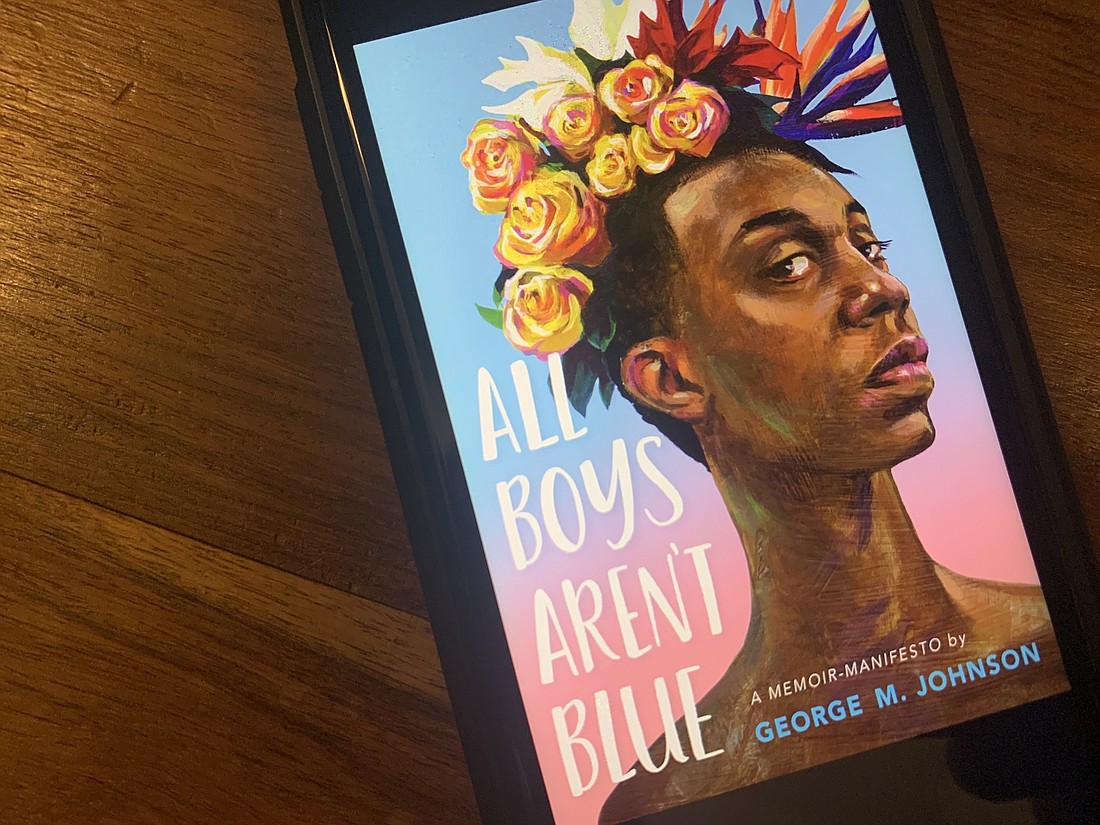- December 15, 2025

George M. Johnson’s “All Boys Aren’t Blue” has uplifted me. I believe that the book was written, as the first several pages proclaim, “with care and love” and as a “gateway for more people to find their truth and find their power to live in that truth.” The book has given me greater empathy for gay Black teens.
But should we overlook the sexually explicit material the book contains and keep it in high school media centers?
Some parts of the book, such as when Johnson describes what is happening to the genitals of two young cousins during a sexual molestation, are so vivid that a teenage reader may feel like a witness to the act — which is exactly why Johnson felt violated in the story. The reader, in a sense, is being subjected to a version of the same trauma Johnson endured.
I believe the author’s intent is educational, not erotic, and therefore it’s not pornographic. But I disagree with Johnson’s statement, in a recent interview with FlaglerLive Editor Pierre Tristam, that the book is suitable for ages 14-18. If the scene is depicted faithfully in a movie, genitals and all, it would be Rated-R, meaning theaters wouldn’t allow children under 17 without a parent.
A Flagler Schools committee will ultimately decide the matter, but if I had a vote, “All Boys Aren’t Blue” would be available only with parental consent — or perhaps only to ages 17 and up — just like a Rated-R movie in our society.
Authors can choose to include explicit material in books, and I will defend their right to do so, but the authors have to realize that their choices may disqualify their books from school libraries. Teens can always seek out the books in other venues, and parents are, of course, free to buy whatever books they want in their own homes.
It’s not possible for everyone to feel protected from traumatic images and words in the “real world” of media — on the internet or even in a city library — but safety should be the standard in a student media center. If we want to protect vulnerable students, let's protect all of them. For art to be thought provoking, it doesn’t have to be explicit.
Johnson gave the following warning in the FlaglerLive interview: “Removing my book doesn’t mean that your child won’t still have experiences with the topics I discuss in my book. It simply means they won’t know how to deal with those situations when they happen. And you’ll have no one to blame but yourself.”
If the district does restrict school access to Johnson’s book, it also must keep that warning in mind and do everything possible to help the vulnerable teens Johnson is trying to reach.
I would support having teachers assign portions of Johnson’s book in classrooms, giving his main ideas wide circulation.
“All Boys Aren’t Blue” isn’t the only solution to the problem, though. What other books can be added to the media center that would reach vulnerable teens? What articles and essays might serve similar purposes?
Regardless of whether the book is available to everyone, parents have the most important role in becoming Johnson’s allies in promoting empathy. I challenge every parent to have an age-appropriate “talk” with your children about these issues, in your own way. Whatever our race or sexual orientation, we can help our children become better classmates and friends. We can teach our children to fight racism, abuse and homophobia — and we can set the example by starting the conversation at home.
Email Brian McMillan at [email protected].